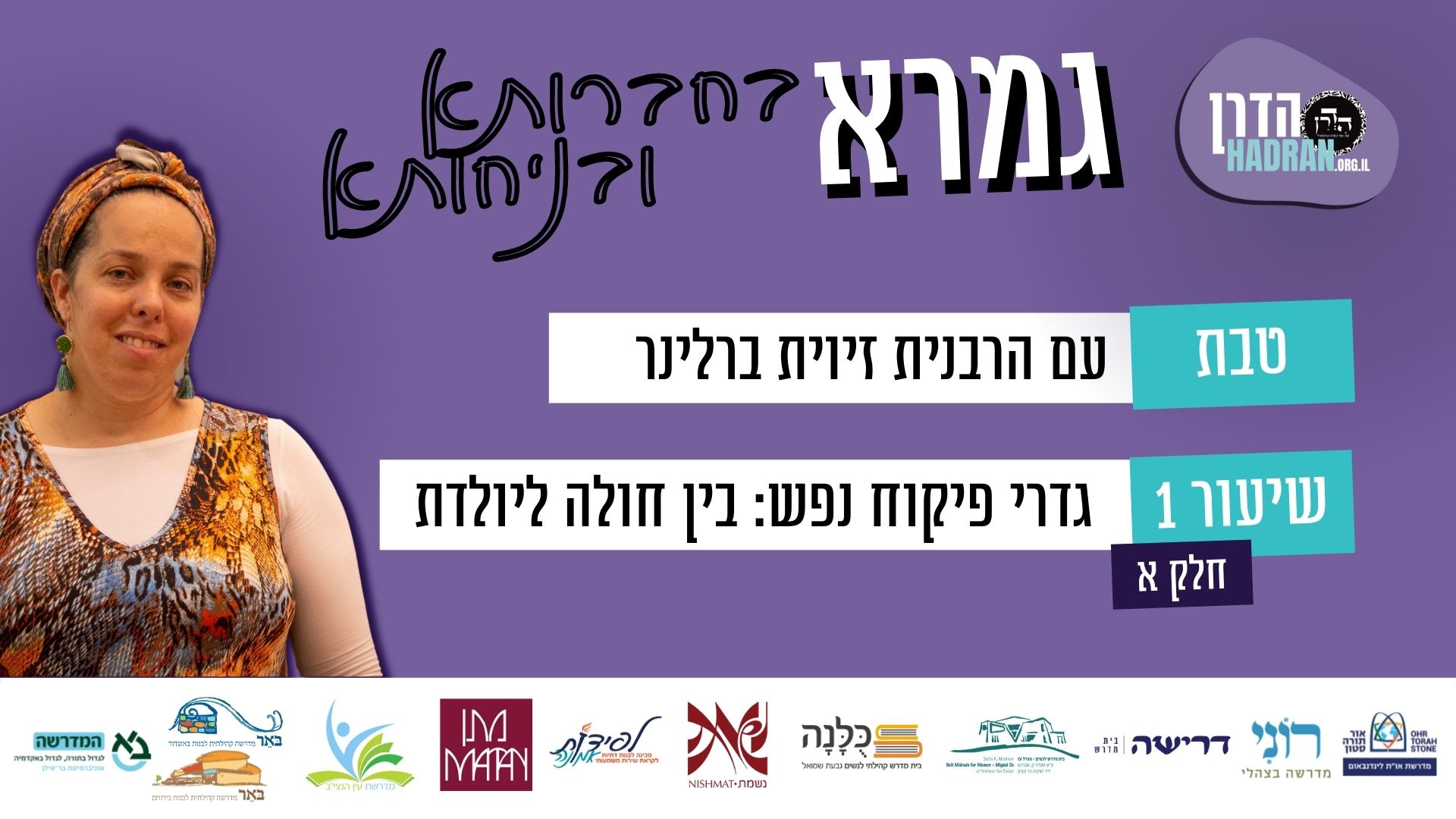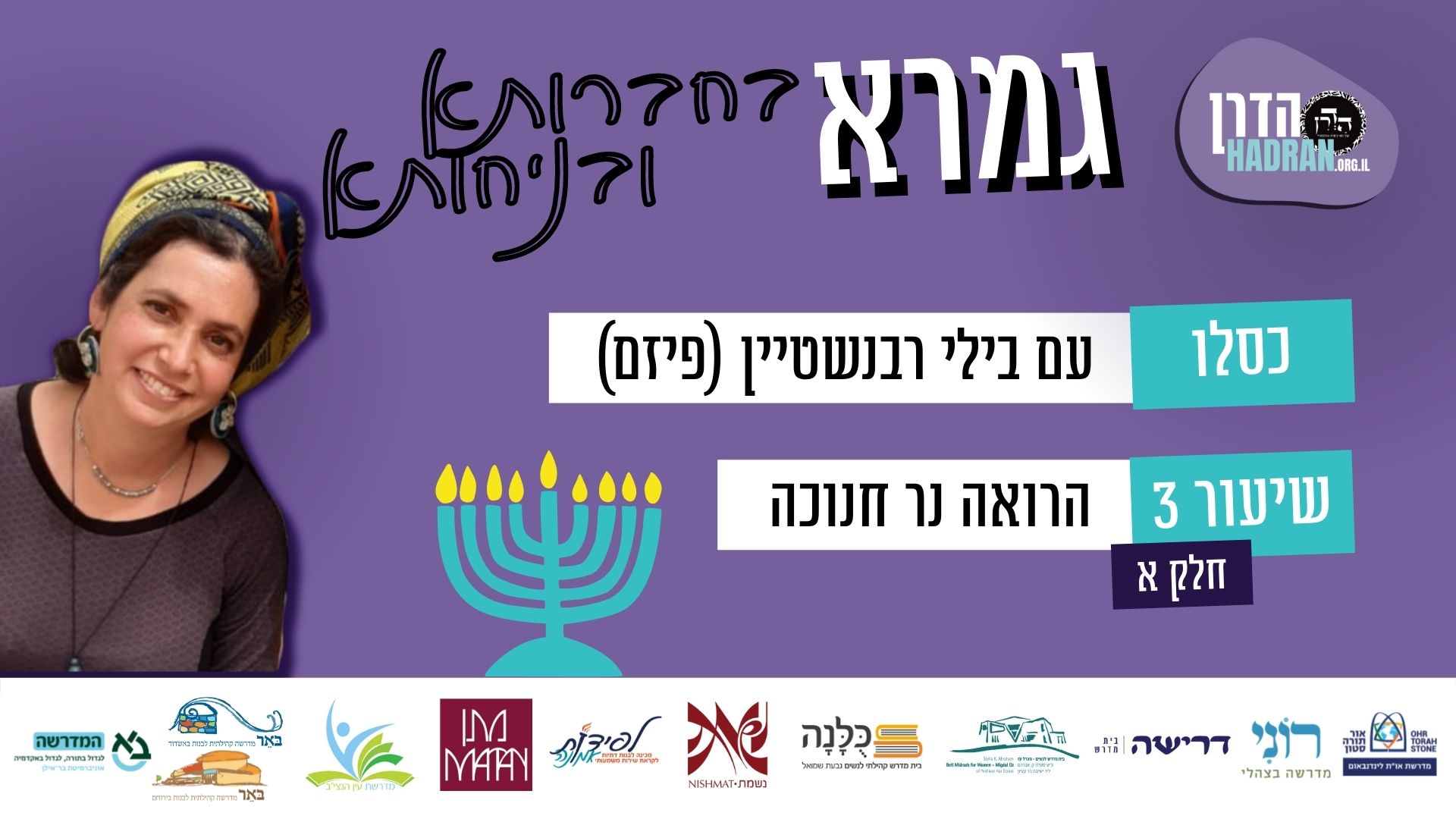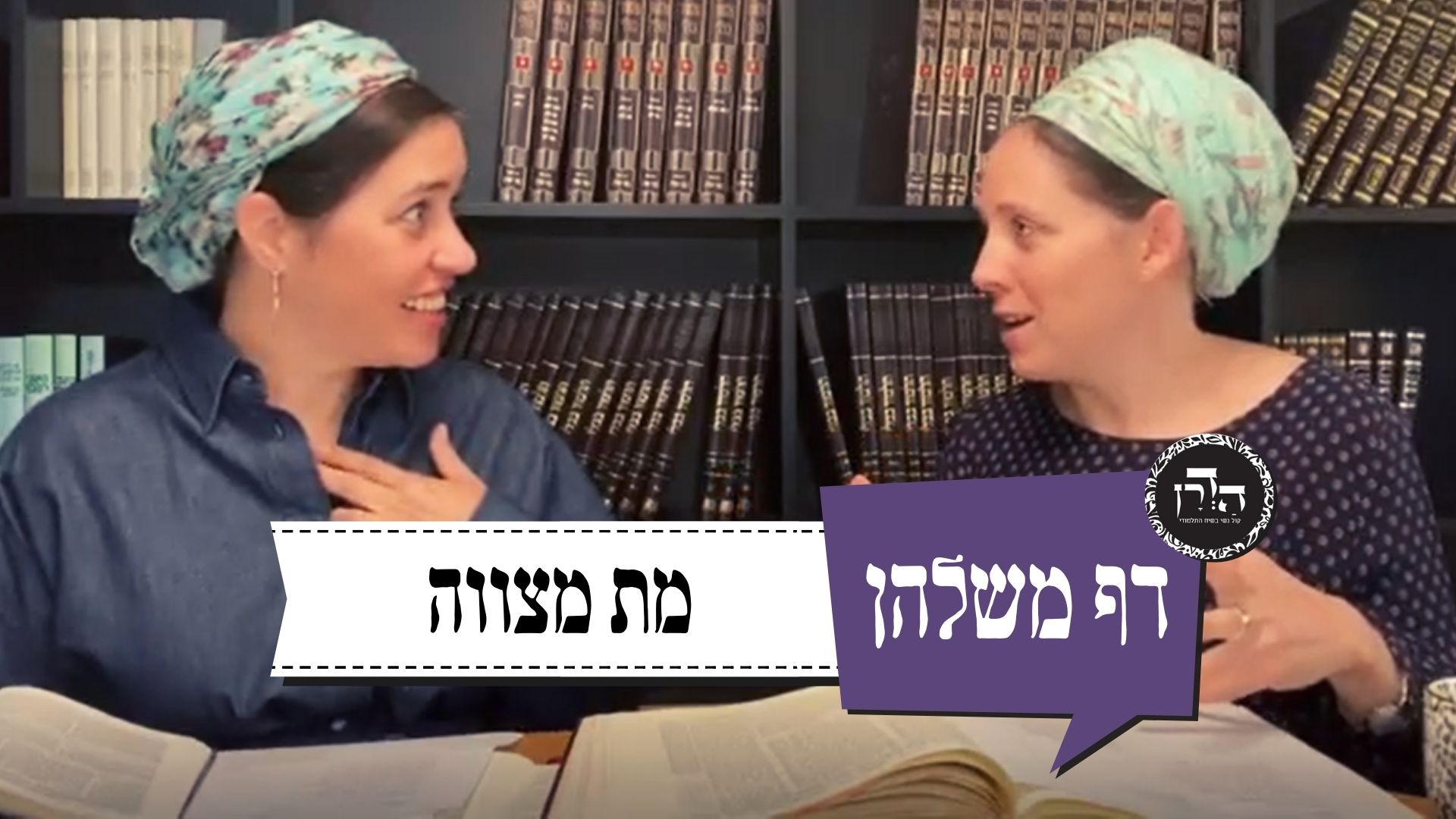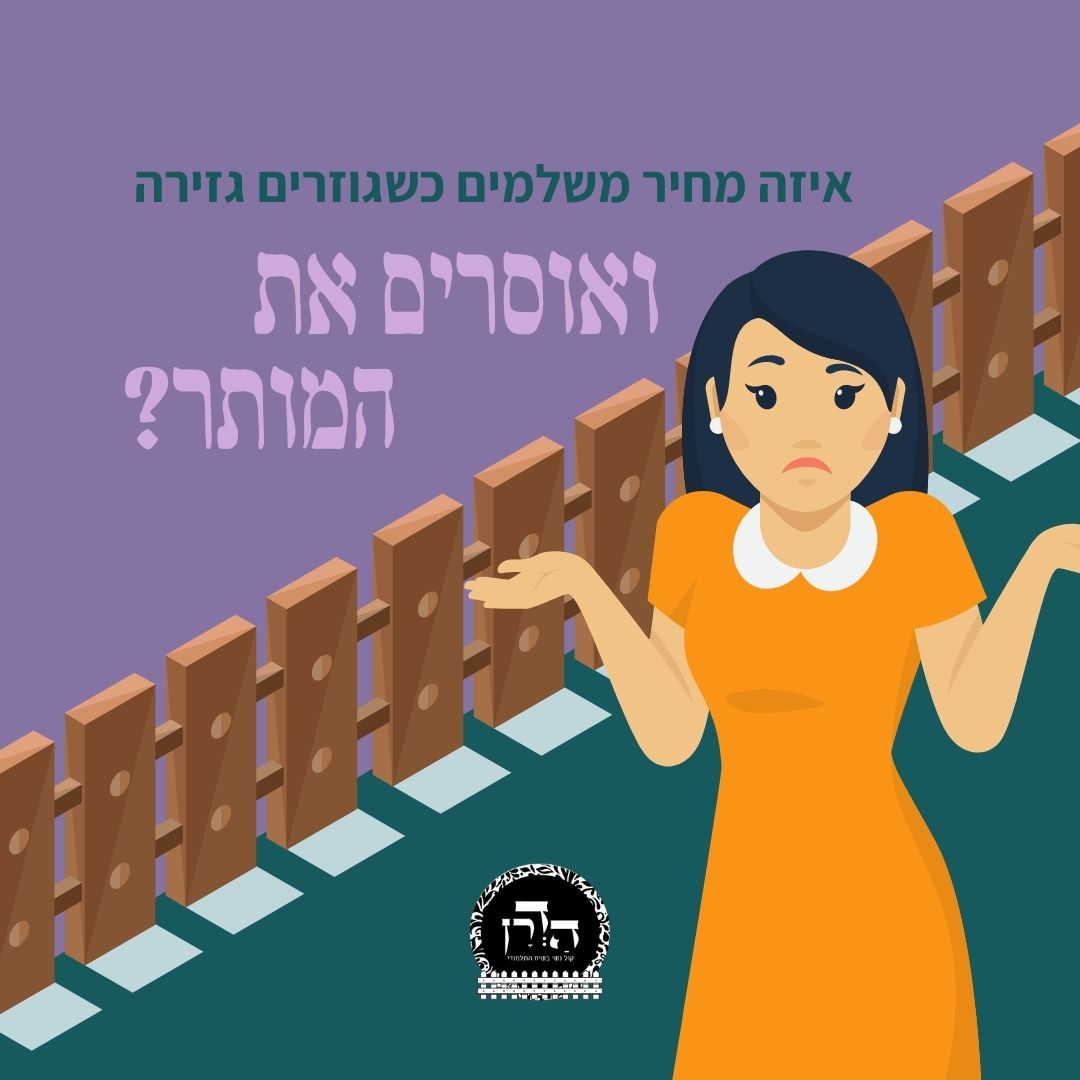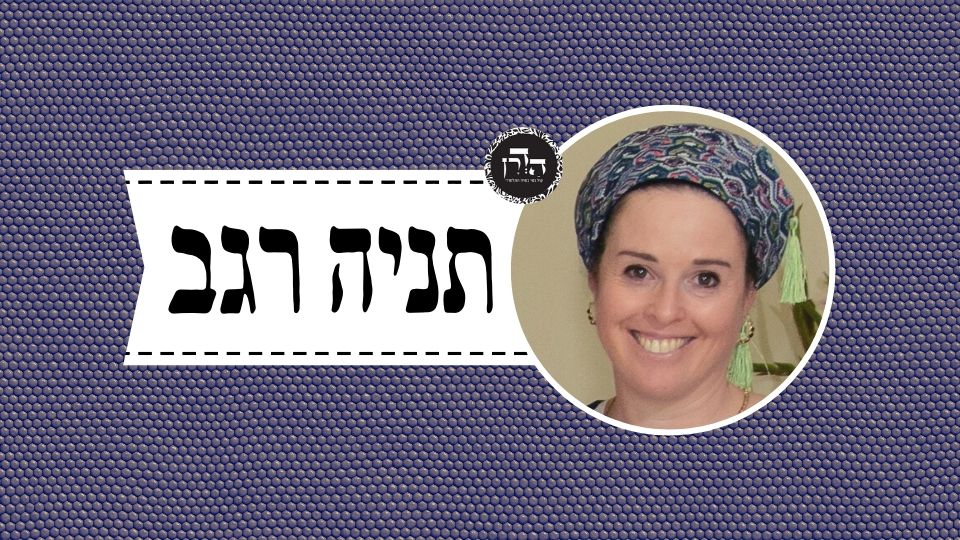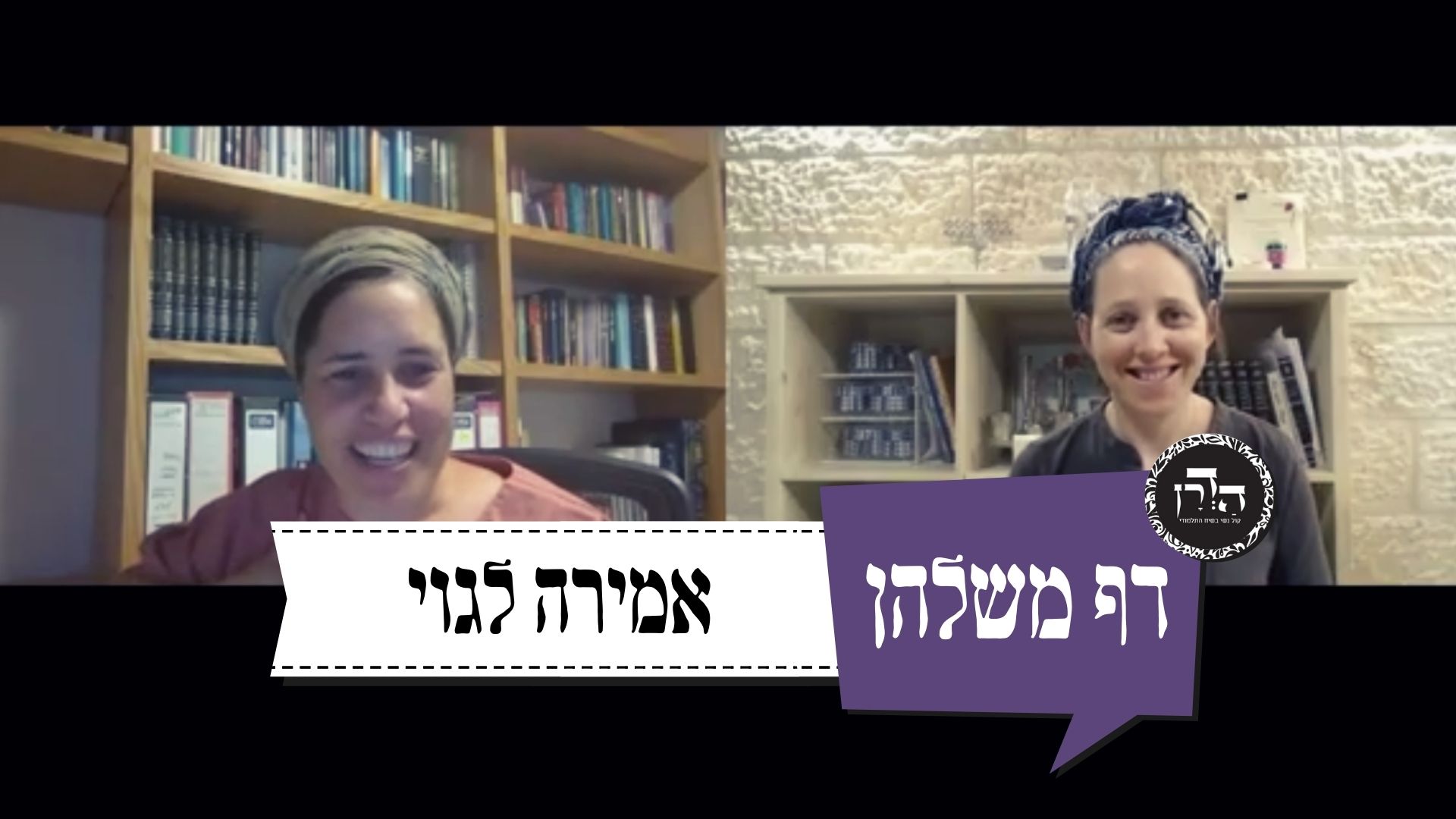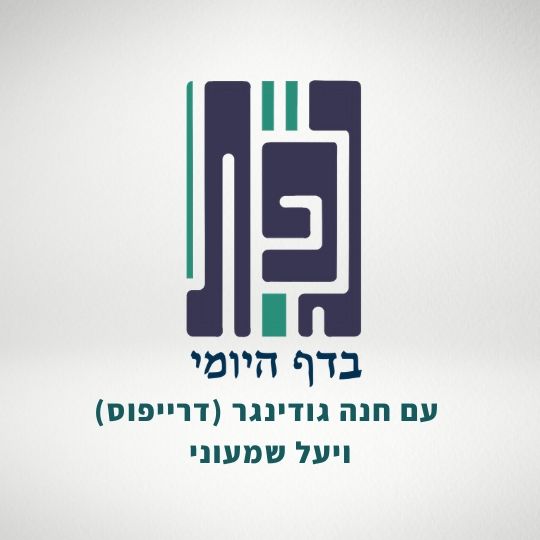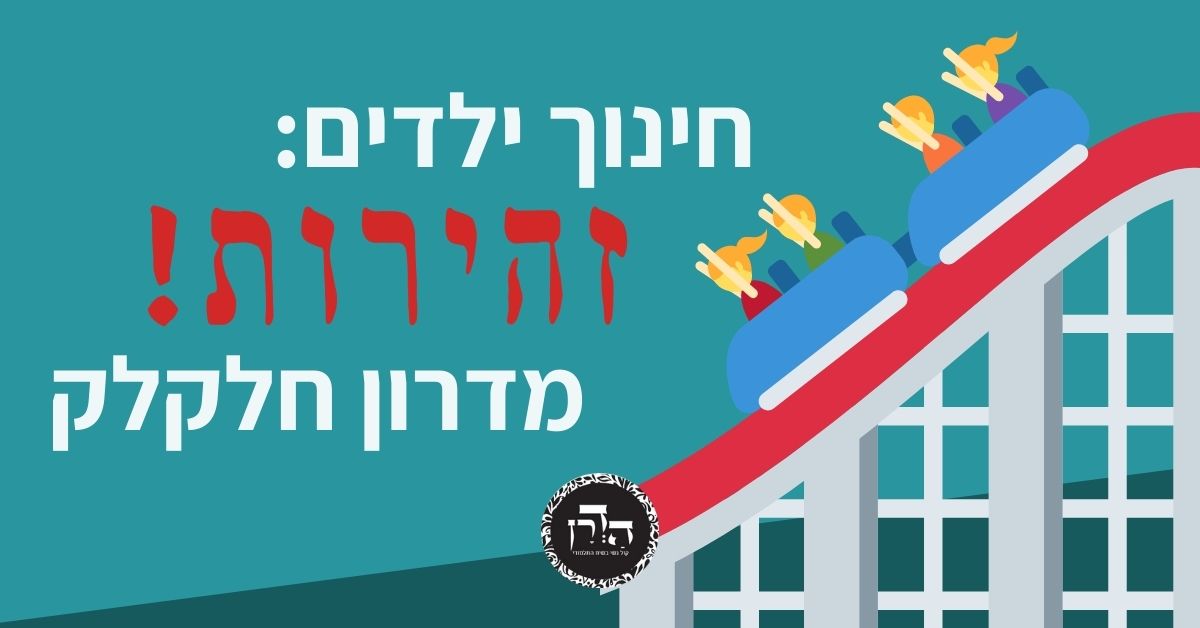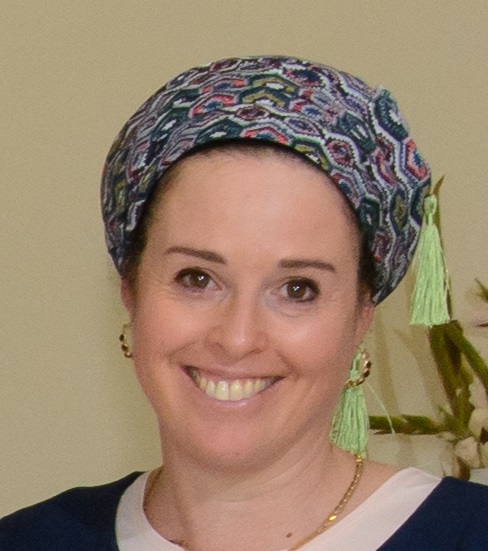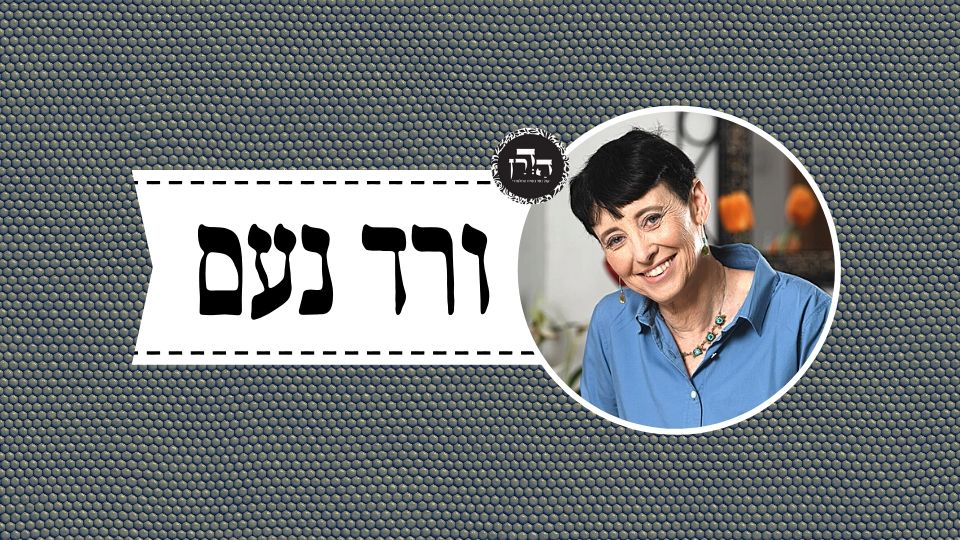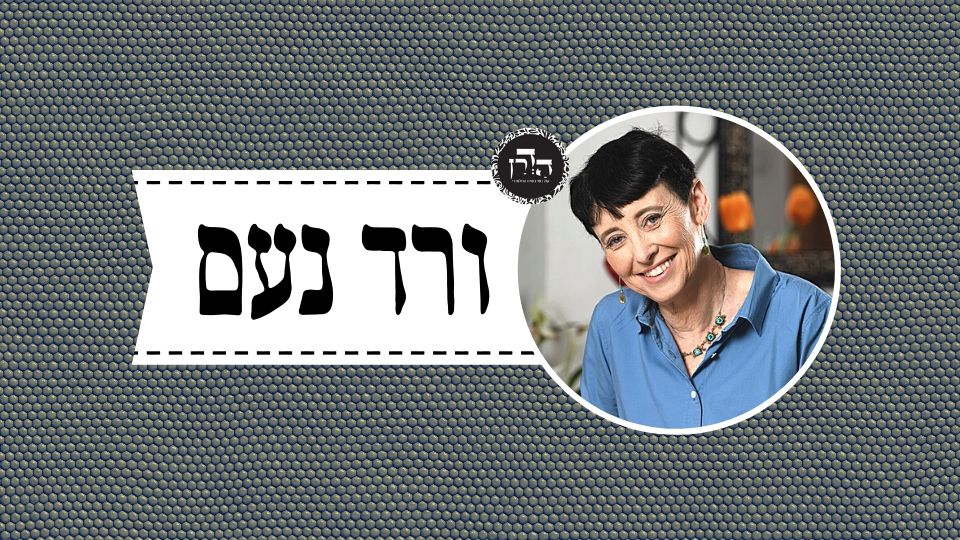שבת נו
בְּנֵי שְׁמוּאֵל חָטְאוּ אֵינוֹ אֶלָּא טוֹעֶה, שֶׁנֶּאֱמַר: ״וַיְהִי (כִּי זָקֵן שְׁמוּאֵל וּבָנָיו לֹא הָלְכוּ) בִּדְרָכָיו״ — בִּדְרָכָיו הוּא דְּלֹא הָלְכוּ, מִיחְטָא נָמֵי לָא חָטְאוּ.
that the sons of Samuel sinned is nothing other than mistaken, as it is stated: “And it came to pass, when Samuel was old that he made his sons judges over Israel…And his sons walked not in his ways but sought after unjust gain, and took bribes, and perverted justice” (I Samuel 8:1–3). By inference: In his ways they did not walk, however, they did not sin either. They were not the equals of their father, but they were not sinners.
אֶלָּא מָה אֲנִי מְקַיֵּים ״וַיִּטּוּ אַחֲרֵי הַבָּצַע״ — שֶׁלֹּא עָשׂוּ כְּמַעֲשֵׂה אֲבִיהֶם, שֶׁהָיָה שְׁמוּאֵל הַצַּדִּיק מְחַזֵּר בְּכָל מְקוֹמוֹת יִשְׂרָאֵל וְדָן אוֹתָם בְּעָרֵיהֶם, שֶׁנֶּאֱמַר: ״וְהָלַךְ מִדֵּי שָׁנָה בְּשָׁנָה וְסָבַב בֵּית אֵל וְהַגִּלְגָּל וְהַמִּצְפָּה וְשָׁפַט אֶת יִשְׂרָאֵל״, וְהֵם לֹא עָשׂוּ כֵּן, אֶלָּא יָשְׁבוּ בְּעָרֵיהֶם כְּדֵי לְהַרְבּוֹת שָׂכָר לְחַזָּנֵיהֶן וּלְסוֹפְרֵיהֶן.
However, how then do I establish the meaning of the verse: “And they sought after unjust gain,” indicating that they were sinners? It means that they did not conduct themselves in accordance with the actions of their father. As Samuel the righteous would travel to all places where the people of Israel were located and sit in judgment in their towns, as it is stated: “And he went from year to year in circuit from Beth-El, and Gilgal, and Mitzpa, and judged Israel in all those places” (I Samuel 7:16). And, however, they did not do so and travel from place to place. Rather, they sat in their own cities in order to enhance the fees collected by their attendants and scribes. Therefore, the verse ascribes to them liability as if they sinned by seeking ill-gotten gains and bribes.
כְּתַנָּאֵי. ״וַיִּטּוּ אַחֲרֵי הַבָּצַע״, רַבִּי מֵאִיר אוֹמֵר חֶלְקָם שָׁאֲלוּ בְּפִיהֶם. רַבִּי יְהוּדָה אוֹמֵר: מְלַאי הִטִּילוּ עַל בַּעֲלֵי בָתִּים. רַבִּי עֲקִיבָא אוֹמֵר: קוּפָּה יְתֵירָה שֶׁל מַעֲשֵׂר נָטְלוּ בִּזְרוֹעַ. רַבִּי יוֹסֵי אוֹמֵר: מַתָּנוֹת נָטְלוּ בִּזְרוֹעַ.
The Gemara notes that this matter is parallel to a dispute between tanna’im. As it was taught in a baraita that the verse states: “And they sought after unjust gain.” Rabbi Meir says: This means that they vocally demanded their portions of the tithe due them as Levites, abusing their position to the detriment of other Levites. Rabbi Yehuda says: They imposed upon local homeowners to sell their merchandise and support them. Rabbi Akiva says: They took an extra basket of tithes, beyond that which was their due, by force. Rabbi Yosei says: They took only the gifts due them; however, they took them by force. They acted improperly, as a Levite is required to wait until he is given his gifts and may not take them.
אָמַר רַבִּי שְׁמוּאֵל בַּר נַחְמָנִי אָמַר רַבִּי יוֹנָתָן: כׇּל הָאוֹמֵר דָּוִד חָטָא אֵינוֹ אֶלָּא טוֹעֶה, שֶׁנֶּאֱמַר: ״וַיְהִי דָּוִד לְכׇל דְּרָכָיו מַשְׂכִּיל וַה׳ עִמּוֹ וְגוֹ׳״. אֶפְשָׁר חֵטְא בָּא לְיָדוֹ וּשְׁכִינָה עִמּוֹ?!
Rabbi Shmuel bar Naḥmani said that Rabbi Yonatan said: Anyone who says that David sinned with Bathsheba is nothing other than mistaken, as it is stated: “And David succeeded in all his ways; and the Lord was with him” (I Samuel 18:14). Is it possible that sin came to his hand and nevertheless the Divine Presence was with him?
אֶלָּא מָה אֲנִי מְקַיֵּים ״מַדּוּעַ בָּזִיתָ אֶת דְּבַר ה׳ לַעֲשׂוֹת הָרַע״ — שֶׁבִּיקֵּשׁ לַעֲשׂוֹת וְלֹא עָשָׂה.
However, how then do I establish the meaning of the rebuke of the prophet Nathan: “Why have you despised the word of the Lord, to do that which is evil in My sight? Uriah the Hittite you have smitten with the sword, and his wife you have taken to be your wife, and him you have slain with the sword of the children of Ammon” (II Samuel 12:9), indicating that David sinned? The Gemara answers: David sought to do evil and have relations with Bathsheba while she was still married to Uriah but did not do so.
אָמַר רַב: רַבִּי דְּאָתֵי מִדָּוִד מְהַפֵּךְ וְדָרֵישׁ בִּזְכוּתֵיהּ דְּדָוִד. ״מַדּוּעַ בָּזִיתָ אֶת דְּבַר ה׳ לַעֲשׂוֹת הָרַע״ — רַבִּי אוֹמֵר: מְשׁוּנָּה רָעָה זוֹ מִכׇּל רָעוֹת שֶׁבַּתּוֹרָה, שֶׁכָּל רָעוֹת שֶׁבַּתּוֹרָה כְּתִיב בְּהוּ ״וַיַּעַשׂ״, וְכָאן כְּתִיב ״לַעֲשׂוֹת״ — שֶׁבִּיקֵּשׁ לַעֲשׂוֹת וְלֹא עָשָׂה.
Rav said: Rabbi Yehuda HaNasi, who descends from the house of David, seeks to teach the verse in favor of David. With regard to that which is written: “Why have you despised the commandment of the Lord to do evil,” Rabbi Yehuda HaNasi said: This evil mentioned with regard to David is different from all other evils in the Torah; as with regard to all other evils in the Torah, it is written: And he did evil, and here it is written: To do evil. This unique phrase indicates that David sought to do evil but did not actually do so. His intentions were improper; however, his actions were proper.
״אֵת אוּרִיָּה הַחִתִּי הִכִּיתָ בַחֶרֶב״ — שֶׁהָיָה לְךָ לְדוּנוֹ בְּסַנְהֶדְרִין וְלֹא דַּנְתָּ. ״וְאֶת אִשְׁתּוֹ לָקַחְתָּ לְּךָ לְאִשָּׁה״ — לִיקּוּחִין יֵשׁ לְךָ בָּהּ.
That which is written: “Uriah the Hittite you have smitten with the sword,” means that you could have judged him before the Sanhedrin as one guilty of treason against the throne, and you did not judge him in that manner. Instead, you had him executed in a manner that deviated from the generally accepted principles of judgment. With regard to that which is written: “And his wife you have taken to be your wife”; it means that you have rights of marriage with her, as by law Bathsheba was already divorced from Uriah.
דְּאָמַר רַבִּי שְׁמוּאֵל בַּר נַחְמָנִי אָמַר רַבִּי יוֹנָתָן: כׇּל הַיּוֹצֵא לְמִלְחֶמֶת בֵּית דָּוִד, כּוֹתֵב גֵּט כְּרִיתוּת לְאִשְׁתּוֹ. שֶׁנֶּאֱמַר: ״וְאֵת עֲשֶׂרֶת חֲרִיצֵי הֶחָלָב הָאֵלֶּה תָּבִיא לְשַׂר הָאָלֶף וְאֶת אַחֶיךָ תִּפְקֹד לְשָׁלוֹם וְאֶת עֲרֻבָּתָם תִּקָּח״.
As Rabbi Shmuel bar Naḥmani said that Rabbi Yonatan said: Anyone who goes to a war waged by the royal house of David writes a conditional bill of divorce to his wife. That was done to prevent a situation in which the soldier’s wife would be unable to remarry because the soldier did not return from battle and there were no witnesses to his fate. The conditional bill of divorce accorded her the status of a divorcee and freed her to remarry. As it is stated: “And carry these ten cheeses to the captain of their thousand, and to your brothers bring greetings and take their pledge [arubatam]” (I Samuel 17:18).
מַאי ״עֲרֻבָּתָם״? — תָּנֵי רַב יוֹסֵף: דְּבָרִים הַמְעוֹרָבִים בֵּינוֹ לְבֵינָהּ.
What is the meaning of arubatam? Rav Yosef taught: It refers to matters that are shared [hame’oravim] between him, the husband, and her, the wife, i.e., marriage. The verse should be read: Take the bill of divorce that determines the status of the relationship between husband and wife. As, apparently, it was customary for men at war to send their wives a conditional divorce, since Uriah later died, Bathsheba retroactively assumed divorced status from the time that he set out to war. She was not forbidden to David.
״וְאֹתוֹ הָרַגְתָּ בְּחֶרֶב בְּנֵי עַמּוֹן״ — מַה חֶרֶב בְּנֵי עַמּוֹן אִי אַתָּה נֶעֱנָשׁ עָלָיו, אַף אוּרִיָּה הַחִתִּי אִי אַתָּה נֶעֱנָשׁ עָלָיו.
With regard to that which is written: “And him you have slain with the sword of the children of Ammon,” it means: Just as you are not punished for soldiers killed by the sword of the children of Ammon in the course of the war, so too you are not punished for the death of Uriah the Hittite.
מַאי טַעְמָא — מוֹרֵד בַּמַּלְכוּת הֲוָה. דַּאֲמַר לֵיהּ: ״וַאדֹנִי יוֹאָב וְעַבְדֵי אֲדֹנִי עַל פְּנֵי הַשָּׂדֶה חֹנִים״.
What is the reason that David was not liable for the death of Uriah? Because Uriah was a traitor against the throne. As he said to David: “And my lord Joab and the servants of my lord are encamped in the open fields” (II Samuel 11:11). In the presence of the king, one may not refer to another as his lord. Doing so is treason.
אָמַר רַב: כִּי מְעַיְּינַתְּ בֵּיהּ בְּדָוִד לָא מַשְׁכַּחַתְּ בֵּיהּ בַּר מִדְּאוּרִיָּה, דִּכְתִיב: ״רַק בִּדְבַר אוּרִיָּה הַחִתִּי״.
Rav said: When you analyze the matter of David, no sin that he committed is found in his lifetime, except for that involving Uriah. As it is written: “Because David did that which was right in the eyes of the Lord, and turned not aside from any thing that He commanded him all the days of his life, save only in the matter of Uriah the Hittite” (I Kings 15:5).
אַבָּיֵי קַשִּׁישָׁא רָמֵי דְּרַב אַדְּרַב: מִי אָמַר רַב הָכִי? וְהָאָמַר רַב: קִיבֵּל דָּוִד לָשׁוֹן הָרָע. קַשְׁיָא.
Abaye the Elder raised a contradiction between one statement of Rav and another statement of Rav: Did Rav actually say this? Didn’t Rav say: David accepted a slanderous report? Just as it is prohibited to relate a slanderous report, it is similarly prohibited to accept it. This contradiction remains unresolved, and it is difficult.
גּוּפָא. רַב אָמַר: קִיבֵּל דָּוִד לָשׁוֹן הָרָע, דִּכְתִיב: ״וַיֹּאמֶר לוֹ הַמֶּלֶךְ אֵיפוֹא הוּא וַיֹּאמֶר צִיבָא אֶל הַמֶּלֶךְ הִנֵּה הוּא בֵּית מָכִיר בֶּן עַמִּיאֵל בְּלֹא דְבָר״. וּכְתִיב: ״וַיִּשְׁלַח הַמֶּלֶךְ וַיִּקָּחֵהוּ מִבֵּית מָכִיר בֶּן עַמִּיאֵל מִלֹּא דְבָר״.
The Gemara now examines the matter itself with regard to Rav’s statement cited in the course of the previous discussion. Rav said: David accepted a slanderous report, as it is written with regard to David’s search for a surviving son of Jonathan: “And the king said to him, to Ziba, Saul’s slave: Where is he? And Ziba said to the king: Behold, he is in the house of Machir, the son of Ammiel, in Lo-Devar [belo devar]” (II Samuel 9:4). Ziba indicated to David that Jonathan’s son was inconsequential, lacking any matter [lo devar] of Torah. And it is written: “Then King David sent, and fetched him out of the house of Machir, the son of Ammiel, from Lo-Devar [milo devar]” (II Samuel 9:5). That verse can be read that after sending for him, David found him filled with matters [melo devar] of Torah.
מִכְּדִי חַזְיֵיהּ דְּשַׁקָּרָא הוּא, כִּי הֲדַר אַלְשֵׁין עִילָּוֵיהּ מַאי טַעְמָא קַבֵּיל מִינֵּיהּ? דִּכְתִיב: ״וַיֹּאמֶר הַמֶּלֶךְ אֶל צִיבָא אַיֵּה בֶּן אֲדוֹנֶיךָ וַיֹּאמֶר צִיבָא אֶל הַמֶּלֶךְ הִנֵּה הוּא יוֹשֵׁב בִּירוּשָׁלַיִם וְגוֹ׳״. וּמְנָא לַן דְּקַבֵּיל מִינֵּיהּ, דִּכְתִיב: ״וַיֹּאמֶר הַמֶּלֶךְ הִנֵּה לְךָ כֹּל אֲשֶׁר לִמְפִיבוֹשֶׁת וַיֹּאמֶר צִיבָא הִשְׁתַּחֲוֵיתִי אֶמְצָא חֵן בְּעֵינֵי הַמֶּלֶךְ״.
Now, after David saw that Ziba was a liar, when Ziba once again slandered Jonathan’s son, Mephibosheth, why did David accept his report? As it is written that when David fled from Absalom, he met Ziba: “And the king said: And where is your master’s son? And Ziba said to the king: Behold, he is staying in Jerusalem, as he said: Today shall the house of Israel restore to me the kingdom of my father” (II Samuel 16:3). And from where do we derive that David accepted Ziba’s slanderous report? As it is written: “Then said the king to Ziba: Behold, all that belongs to Mephibosheth is yours. And Ziba said: I humbly beseech you that I may find favor in your sight, my lord, O king” (II Samuel 16:4).
וּשְׁמוּאֵל אָמַר: לֹא קִיבֵּל דָּוִד לָשׁוֹן הָרָע, דְּבָרִים הַנִּיכָּרִים חֲזָא בֵּיהּ. דִּכְתִיב: ״וּמְפִיבוֹשֶׁת בֶּן שָׁאוּל יָרַד לִפְנֵי הַמֶּלֶךְ וְלֹא עָשָׂה רַגְלָיו וְלֹא עָשָׂה שְׂפָמוֹ וְאֶת בְּגָדָיו לֹא כִבֵּס וְגוֹ׳״. וּכְתִיב: ״וַיְהִי כִּי בָא יְרוּשָׁלִַים לִקְרַאת הַמֶּלֶךְ וַיֹּאמֶר לוֹ הַמֶּלֶךְ לָמָּה לֹא הָלַכְתָּ עִמִּי מְפִיבוֹשֶׁת. וַיֹּאמַר אֲדֹנִי הַמֶּלֶךְ עַבְדִּי רִמָּנִי כִּי אָמַר עַבְדְּךָ אֶחְבְּשָׁה לִּי הַחֲמוֹר וְאֶרְכַּב עָלֶיהָ וְאֵלֵךְ אֶת הַמֶּלֶךְ כִּי פִסֵּחַ
And Shmuel said: David did not accept Ziba’s slanderous report without substantiation. Rather, he himself saw conspicuous matters in Mephibosheth that indicated that Ziba was right. As it is written: “And Mephibosheth, the son of Saul, came down to meet the king, and he had neither dressed his feet, nor trimmed his beard, nor washed his clothes from the day the king departed until the day he came back in peace” (II Samuel 19:25). David thought that he was mourning the fact that he had returned in peace. And it is written: “And it came to pass, when he came to Jerusalem to meet the king, and the king said to him: Why did you not go with me, Mephibosheth? And he answered: My lord, O king, my servant deceived me; for your servant said: I will saddle me a donkey, and I will ride on it, and go to the king; because lame is
עַבְדֶּךָ. וַיְרַגֵּל בְּעַבְדְּךָ אֶל אֲדֹנִי הַמֶּלֶךְ וַאדֹנִי הַמֶּלֶךְ כְּמַלְאַךְ הָאֱלֹהִים וַעֲשֵׂה הַטּוֹב בְּעֵינֶיךָ״. ״וַיֹּאמֶר לוֹ הַמֶּלֶךְ לָמָּה תְּדַבֵּר עוֹד דְּבָרֶיךָ אָמַרְתִּי אַתָּה וְצִיבָא תַּחְלְקוּ אֶת הַשָּׂדֶה. וַיֹּאמֶר מְפִיבֹשֶׁת אֶל הַמֶּלֶךְ גַּם אֶת הַכֹּל יִקָּח אַחֲרֵי אֲשֶׁר בָּא אֲדֹנִי הַמֶּלֶךְ בְּשָׁלוֹם אֶל בֵּיתוֹ״. אָמַר לוֹ: אֲנִי אָמַרְתִּי ״מָתַי תָּבֹא בְּשָׁלוֹם״, וְאַתָּה עוֹשֶׂה לִי כָּךְ? לֹא עָלֶיךָ יֵשׁ לִי תַּרְעוֹמוֹת אֶלָּא עַל מִי שֶׁהֱבִיאֲךָ בְּשָׁלוֹם.
your servant. And he slandered your servant to my lord the king; but my lord the king is like an angel of God: Do therefore what is good in your eyes” (II Samuel 19:26–28). “And the king said to him: Why do you speak any more of your matters? I have said: You and Ziba shall divide the estate. And Mephibosheth said to the king: Let him even take all, seeing that my lord the king is come back in peace to his own house” (II Samuel 19:30–31). Mephibosheth said to David as follows: I had hoped for your return, saying: When will he come in peace, and yet you do this to me, giving Ziba half of my estate? It is not against you that I have grievances, but against He who brought you back in peace. Mephibosheth’s own statement substantiates Ziba’s report about him.
הַיְינוּ דִּכְתִיב: ״וּבֶן יְהוֹנָתָן מְרִיב בָּעַל״, וְכִי ״מְרִיב בַּעַל״ שְׁמוֹ? וַהֲלֹא מְפִיבֹשֶׁת שְׁמוֹ! אֶלָּא מִתּוֹךְ שֶׁעָשָׂה מְרִיבָה עִם בְּעָלָיו. יָצְתָה בַּת קוֹל וְאָמְרָה לוֹ: נַצָּא בַּר נַצָּא. ״נַצָּא״ — הָא דַּאֲמַרַן. ״בַּר נַצָּא״ — דִּכְתִיב: ״וַיָּבֹא שָׁאוּל עַד עִיר עֲמָלֵק וַיָּרֶב בַּנָּחַל״, אָמַר רַבִּי מָנִי: עַל עִסְקֵי נַחַל.
This is what is written: “And the son of Jonathan was Meriv-Baal” (I Chronicles 8:34). The Gemara asks: And was Meriv-Baal his name? Wasn’t his name Mephibosheth? However, since he entered into a quarrel [meriva] with his Master [ba’al], i.e., God, and complained about God having saved David, a Divine Voice emerged and said to him: Quarrelsome one, the son of a quarrelsome one; you are just like your father, Saul. The Gemara explains: Quarrelsome one; that which we just said that Mephibosheth complained to God about His salvation of David. The son of a quarrelsome one; as it is written: “And Saul came to a city of Amalek and quarreled in the valley” (I Samuel 15:5). And Rabbi Mani said: Saul quarreled with God with regard to matters of the valley, saying: For the murder of even a single person, there is a commandment to break the neck of a heifer in a valley to atone for the crime (see Deuteronomy 21:1–9); why then must all these Amalekites be killed?
אָמַר רַב יְהוּדָה אָמַר רַב: בְּשָׁעָה שֶׁאָמַר דָּוִד לִמְפִיבֹשֶׁת: אַתָּה וְצִיבָא תַּחְלְקוּ אֶת הַשָּׂדֶה, יָצְתָה בַּת קוֹל וְאָמְרָה לוֹ: רְחַבְעָם וְיָרָבְעָם יַחְלְקוּ אֶת הַמְּלוּכָה.
To the matter at hand: Rav Yehuda said that Rav said: When David said to Mephibosheth: You and Ziba shall divide the estate, a Divine Voice emerged and said to him: Rehoboam and Jeroboam shall divide the kingdom.
אָמַר רַב יְהוּדָה אָמַר רַב: אִילְמָלֵי לֹא קִיבֵּל דָּוִד לָשׁוֹן הָרָע לֹא נֶחְלְקָה מַלְכוּת בֵּית דָּוִד, וְלֹא עָבְדוּ יִשְׂרָאֵל עֲבוֹדָה זָרָה, וְלֹא גָּלִינוּ מֵאַרְצֵנוּ.
Rav Yehuda said that Rav said: Had David not accepted Ziba’s slanderous report about Mephibosheth, the kingdom of the house of David would not have been divided, Israel would not have worshipped idols because of Jeroboam, and we would not have been exiled from our land.
אָמַר רַבִּי שְׁמוּאֵל בַּר נַחְמָנִי אָמַר רַבִּי יוֹנָתָן: כׇּל הָאוֹמֵר שְׁלֹמֹה חָטָא אֵינוֹ אֶלָּא טוֹעֶה, שֶׁנֶּאֱמַר: ״וְלֹא הָיָה לְבָבוֹ שָׁלֵם עִם ה׳ אֱלֹהָיו כִּלְבַב דָּוִד אָבִיו״ — כִּלְבַב דָּוִד אָבִיו הוּא דְּלָא הֲוָה, מִיחְטָא נָמֵי לָא חֲטָא.
Rabbi Shmuel bar Naḥmani said that Rabbi Yonatan said: Anyone who says that King Solomon sinned is nothing other than mistaken, as it is stated: “And his heart was not perfect with the Lord his God, as was the heart of David, his father” (I Kings 11:4). By inference: Solomon’s heart was not equal to the heart of David, his father; however, he also did not sin.
אֶלָּא מָה אֲנִי מְקַיֵּים ״וַיְהִי לְעֵת זִקְנַת שְׁלֹמֹה נָשָׁיו הִטּוּ אֶת לְבָבוֹ״ — הַהִיא כְּרַבִּי נָתָן. דְּרַבִּי נָתָן רָמֵי, כְּתִיב: ״וַיְהִי לְעֵת זִקְנַת שְׁלֹמֹה נָשָׁיו הִטּוּ אֶת לְבָבוֹ״, וְהָכְתִיב: ״כִּלְבַב דָּוִד אָבִיו״ — כִּלְבַב דָּוִד אָבִיו הוּא דְּלָא הֲוָה מִיחְטָא נָמֵי לָא חֲטָא! הָכִי קָאָמַר: ״וַיְהִי לְעֵת זִקְנַת שְׁלֹמֹה נָשָׁיו הִטּוּ אֶת לְבָבוֹ לָלֶכֶת אַחֲרֵי אֱלֹהִים אֲחֵרִים״ — וְלֹא הָלַךְ.
However, how then do I establish the meaning of the verse: “For it came to pass, when Solomon was old, that his wives turned away his heart after other gods” (I Kings 11:4)? That verse is in accordance with the statement of Rabbi Natan; as Rabbi Natan raised a contradiction between the two parts of the verse. On the one hand, it is written: “For it came to pass, when Solomon was old, that his wives turned away his heart after other gods.” On the other hand, isn’t it written: “And his heart was not perfect with the Lord his God, as was the heart of David his father,” indicating that Solomon’s heart was not equal to the heart of David his father; however, he also did not sin? Rather, the verse says as follows: For it came to pass, when Solomon was old, that his wives turned away his heart, in an attempt to spur him to go after other gods; however, he did not go after them.
וְהָכְתִיב: ״אָז יִבְנֶה שְׁלֹמֹה בָּמָה לִכְמוֹשׁ שִׁקֻּץ מוֹאָב״ — שֶׁבִּקֵּשׁ לִבְנוֹת וְלֹא בָּנָה.
The Gemara asks: Isn’t it written: “Then did Solomon build [yivne] an altar for Kemosh, the abomination of Moab, in the hill that is before Jerusalem, and for Molech, the abomination of the children of Ammon” (I Kings 11:7), indicating that Solomon did in fact stray after idols? The Gemara answers: This can be understood to mean that Solomon sought to build an altar for idols but did not build it.
אֶלָּא מֵעַתָּה: ״אָז יִבְנֶה יְהוֹשֻׁעַ מִזְבֵּחַ לַה׳״ — שֶׁבִּקֵּשׁ לִבְנוֹת וְלֹא בָּנָה?! אֶלָּא דִּבְנָה, הָכָא נָמֵי דִּבְנָה!
The Gemara objects: But now if that is the way to understand the future tense verb form yivne, what of another instance where the same form is employed: “Then did Joshua build [yivne] an altar to the Lord God of Israel in Mount Eival” (Joshua 8:30)? There too, would you say that Joshua sought to build an altar but did not build one? Rather, there, in the case of Joshua, it means that he actually built it. Here too, with regard to Solomon, it means that he actually built the altar.
אֶלָּא כִּדְתַנְיָא, רַבִּי יוֹסֵי אוֹמֵר: ״וְאֶת הַבָּמוֹת אֲשֶׁר עַל פְּנֵי יְרוּשָׁלִַים אֲשֶׁר מִימִין לְהַר הַמִּשְׁחָה אֲשֶׁר בָּנָה שְׁלֹמֹה מֶלֶךְ יִשְׂרָאֵל לְעַשְׁתֹּרֶת שִׁקֻּץ צִידֹנִים וְגוֹ׳״.
Rather, this verse should be understood as it was taught in a baraita that Rabbi Yosei says: The verse states: “And the altars that were before Jerusalem, which were on the right hand of the Mount of Olives, which Solomon the king of Israel had built for Ashtoret the abomination of the Zidonim, and for Kemosh the abomination of Moab, and for Milkom the abomination of the children of Ammon, did the king defile” (II Kings 23:13). All these were destroyed by Josiah.
אֶפְשָׁר בָּא אָסָא וְלֹא בִּיעֲרָם, יְהוֹשָׁפָט וְלֹא בִּיעֲרָם, עַד שֶׁבָּא יֹאשִׁיָּה וּבִיעֲרָם? וַהֲלֹא כׇּל עֲבוֹדָה זָרָה שֶׁבְּאֶרֶץ יִשְׂרָאֵל אָסָא וִיהוֹשָׁפָט בִּיעֲרוּם! אֶלָּא מַקִּישׁ רִאשׁוֹנִים לָאַחֲרוֹנִים, מָה אַחֲרוֹנִים לֹא עָשׂוּ וְתָלָה בָּהֶן לְשֶׁבַח, אַף רִאשׁוֹנִים לֹא עָשׂוּ וְתָלָה בָּהֶן לִגְנַאי.
The Gemara asks: Is it possible that the righteous king Asa came and did not destroy them, and the righteous king Jehosaphat came and did not destroy them until Josiah came and destroyed them? Didn’t Asa and Jehosaphat destroy all the idolatry in Eretz Yisrael? Rather, the verse juxtaposes the earlier ones, i.e., Solomon, to the later ones, i.e., Josiah. Just as the later ones, Josiah, did not effect the destruction of the altars, as it was done by his predecessors, and nevertheless the verse attributes it to him to praise him as if he had destroyed all those altars, so too, the earlier ones, Solomon, did not effect the construction, and nevertheless the verse attributes it to him to disgrace him as he did not prevent their construction.
וְהָכְתִיב: ״וַיַּעַשׂ שְׁלֹמֹה הָרַע בְּעֵינֵי ה׳״! אֶלָּא מִפְּנֵי שֶׁהָיָה לוֹ לִמְחוֹת בְּנָשָׁיו וְלֹא מִיחָה מַעֲלֶה עָלָיו הַכָּתוּב כְּאִלּוּ חָטָא.
The Gemara raises another question. Isn’t it written: “And Solomon did evil in the sight of the Lord” (I Kings 11:6), clearly indicating that Solomon sinned? Rather, since he should have protested against the conduct of his wives, i.e., their involvement in idolatry, but he did not protest, the verse ascribes to him liability as if he had sinned.
אָמַר רַב יְהוּדָה אָמַר שְׁמוּאֵל: נוֹחַ לוֹ לְאוֹתוֹ צַדִּיק שֶׁיְּהֵא שַׁמָּשׁ לְדָבָר אַחֵר, וְאַל יִכָּתֵב בּוֹ ״וַיַּעַשׂ הָרָע בְּעֵינֵי ה׳״.
Rav Yehuda said that Shmuel said: It would have been preferable for that righteous man, Solomon, to be a servant tasked with drawing water and hewing wood for another matter, i.e., idolatry, and not have the verse write about him: “And he did evil in the sight of the Lord,” even though he did not.
אָמַר רַב יְהוּדָה אָמַר שְׁמוּאֵל: בְּשָׁעָה שֶׁנָּשָׂא שְׁלֹמֹה אֶת בַּת פַּרְעֹה, הִכְנִיסָה לוֹ אֶלֶף מִינֵי זֶמֶר, וְאָמְרָה לוֹ כָּךְ עוֹשִׂין לַעֲבוֹדָה זָרָה פְּלוֹנִית, וְכָךְ עוֹשִׂים לַעֲבוֹדָה זָרָה פְּלוֹנִית, וְלֹא מִיחָה בָּהּ.
Rav Yehuda said that Shmuel said: When Solomon married Pharaoh’s daughter, she brought to him a thousand musical instruments and said to him: This is the way we do it for this idolatry, and this is the way we do it for that idolatry, and he did not protest that talk.
אָמַר רַב יְהוּדָה אָמַר שְׁמוּאֵל: בְּשָׁעָה שֶׁנָּשָׂא שְׁלֹמֹה אֶת בַּת פַּרְעֹה יָרַד גַּבְרִיאֵל וְנָעַץ קָנֶה בַּיָּם וְעָלָה בּוֹ שִׂירְטוֹן, וְעָלָיו נִבְנָה כְּרַךְ גָּדוֹל [שֶׁל רוֹמִי].
Rav Yehuda said that Shmuel said: When Solomon married Pharaoh’s daughter, the angel Gabriel descended from heaven and implanted a reed into the sea, and a sandbar grew around it, growing larger each year, and upon it the great city of Rome was built, which became God’s instrument to punish Israel.
בְּמַתְנִיתָא תָּנָא: אוֹתוֹ הַיּוֹם שֶׁהִכְנִיס יָרָבְעָם שְׁנֵי עֶגְלֵי זָהָב, אֶחָד בְּבֵית אֵל וְאֶחָד בְּדָן, נִבְנָה צְרִיף אֶחָד, וְזֶהוּ אִיטַלְיָאה שֶׁל יָוָן.
It was taught in a baraita: On that very day that Jeroboam introduced two golden calves, one in Beth-El and the other in Dan, a single small hut was constructed, which was the first house constructed there. And that was the inauguration of Italy of Greece.
אָמַר רַבִּי שְׁמוּאֵל בַּר נַחְמָנִי אָמַר רַבִּי יוֹנָתָן: כׇּל הָאוֹמֵר יֹאשִׁיָּהוּ חָטָא — אֵינוֹ אֶלָּא טוֹעֶה, שֶׁנֶּאֱמַר: ״וַיַּעַשׂ הַיָּשָׁר בְּעֵינֵי ה׳ וַיֵּלֶךְ בְּכׇל דֶּרֶךְ דָּוִד אָבִיו״. אֶלָּא מָה אֲנִי מְקַיֵּים ״וְכָמֹהוּ לֹא הָיָה לְפָנָיו מֶלֶךְ אֲשֶׁר שָׁב וְגוֹ׳״?
Rabbi Shmuel bar Naḥmani said that Rabbi Yonatan said: Anyone who says that Josiah sinned is nothing other than mistaken, as it is stated: “And he did that which was right in the sight of the Lord, and walked in all the way of David his father, and turned not aside to the right hand nor to the left” (II Kings 22:2). However, how then do I establish the meaning of the verse: “And like him was there no king before him that returned to the Lord with all his heart, and with all his soul, and with all his might, according to all the Torah of Moses; neither after him arose there any like him” (II Kings 23:25)? The verse states: Josiah returned to the Lord. Apparently, in his early days he was a sinner, and later he returned to God.
שֶׁכָּל דִּין שֶׁדָּן מִבֶּן שְׁמֹנֶה עַד שְׁמֹנֶה עֶשְׂרֵה הֶחְזִירָן לָהֶן. שֶׁמָּא תֹּאמַר נָטַל מִזֶּה וְנָתַן לָזֶה — תַּלְמוּד לוֹמַר ״בְּכָל מְאֹדוֹ״: שֶׁנָּתַן לָהֶם מִשֶּׁלּוֹ.
The Gemara answers: The reference here is not to repentance for actual sins that Josiah committed. Rather, in every judgment that he issued from the age of eight, when he was crowned, until the age of eighteen, he returned the money to the parties whom he judged liable, due to concern that in his youth he may not have judged the cases correctly. And lest you say that he took from this one, whom he exonerated, and gave to that one, whom he found culpable, therefore the verse states: Returned to the Lord with all his might [me’odo], i.e., with all his money. It means that he gave those he judged liable in his youth from his own money.
וּפְלִיגָא דְּרַב, דְּאָמַר רַב: אֵין לְךָ גָּדוֹל בְּבַעֲלֵי תְּשׁוּבָה יוֹתֵר מִיֹּאשִׁיָּהוּ בְּדוֹרוֹ וְאֶחָד בְּדוֹרֵנוּ. וּמַנּוּ? אַבָּא אֲבוּהּ דְּרַבִּי יִרְמְיָה בַּר אַבָּא. וְאָמְרִי לַהּ אַחָא אֲחוּהּ דְּאַבָּא אֲבוּהּ דְּרַב יִרְמְיָה בַּר אַבָּא. דְּאָמַר מָר: רַבִּי אַבָּא וְאַחָא אַחֵי הֲווֹ.
The Gemara notes that Rabbi Yonatan disagrees with Rav, as Rav said: There is no greater penitent than Josiah in his generation, and there is one in our generation. The Gemara asks: And who is the great penitent in Rav’s generation? The Gemara answers: He is Abba, father of Rabbi Yirmeya bar Abba, and some say it is Aḥa, brother of Abba, father of Rabbi Yirmeya bar Abba, as the Master said: Rabbi Abba and Aḥa were brothers.
אָמַר רַב יוֹסֵף: וְעוֹד אֶחָד בְּדוֹרֵנוּ. וּמַנּוּ? — עוּקְבָן בַּר נְחֶמְיָה רֵישׁ גָּלוּתָא. וְהַיְינוּ ״נָתָן דְּצוּצִיתָא״. אָמַר רַב יוֹסֵף: הֲוָה יָתֵיבְנָא בְּפִירְקָא, וַהֲוָה קָא מְנַמְנַמְנָא, וַחֲזַאי בְּחֶילְמָא דְּקָא פְּשַׁט יְדֵיהּ וְקַבְּלֵיהּ.
Rav Yosef said: And there is another great penitent in our generation. And who is he? He is Okvan, son of Neḥemya the Exilarch. And that is the one also known as Natan detzutzita, i.e., from whose head sparks emerged. Rav Yosef said: I was once sitting at the lecture delivered on the Festival [pirka] and I was dozing. And I saw in a dream how an angel stretched out his hands and received Natan detzutzita, demonstrating that his repentance was accepted.
הדרן עלך במה בהמה



